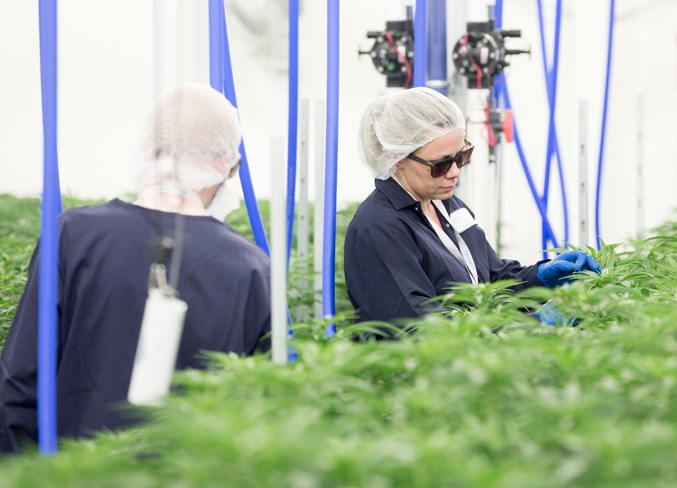A class action lawsuit has been filed in the United States against an Olds cannabis production company, along with members of its board and executive and six investment banking firms.
The suit alleges Sundial Growers and seven people associated with it, along with the company's underwriters — BMO Nesbitt Burns Inc., RBC Dominion Securities Inc. Barclays Capital Canada Inc., CIBC World Markets Inc., and Scotia Capital Inc. — violated U.S. securities laws.
New York-based The Rosen Law Firm filed the complaint on behalf of the plaintiff, Yimin Huang, in the United States District Court Southern District of New York on Sept. 25.
Huang, the court filing states, is acting on behalf of people who purchased or acquired Sundial securities in connection with its Aug. 1 initial public stock offering (IPO).
Sundial sold 11 million common shares on the NASDAQ at US$13 per share, for gross proceeds of US$143 million.
“Since the IPO, and as a result of the disclosure of material adverse fact omitted from Sundial’s Registration Statement, Sundial’s stock price has fallen substantially below its IPO price, damaging Plaintiff and Class members,” the suit states.
When the company went public on Aug. 1, the suit alleges the company’s Registration Statement didn’t disclose that Sundial failed to supply saleable cannabis in line with contractual obligations to Zenabis Global Inc.
An online MarketWatch article -- published in the weeks after the closing of the IPO -- stated Zenabis Global returned 554 kilograms of cannabis to Sundial “because it contained visible mold, parts of rubber gloves and other non-cannabis material.”
The Rosen Law Firm issued an equity alert on Sept. 25 stating that “when the true details entered the market, the lawsuit claims that investors suffered damages.”
The firm says the defendants’ statements about Sundial’s business, operations, and prospects were materially false and misleading and/or lacked a reasonable basis at all relevant times.
Sundial’s chief executive officer, who is also named in the suit, refutes the allegations.
"We strongly believe that Sundial did not mislead investors and disclosed all material information to investors in our IPO,” said Torsten Kuenzlen in a prepared statement issued last week.
“We are therefore confident that the class action lawsuits filed against Sundial are completely without merit and intend to vigorously defend our company in these matters.”
Sundial issued a statement in the days after the article was published in mid-August stating it contained factual inaccuracies and acknowledged it uses standard provisions for potential returns which is consistent with industry practice.
“While Sundial cannot comment on specific customer agreements due to contractual confidentiality, we can confirm that this isolated immaterial matter is being resolved between Sundial and the licensed producer,” the statement read.
Zenabis Global Inc. reported in its second quarter filing that “certain third-party producers failed to supply saleable cannabis in line with contractual obligations. Due to quality issues, Zenabis had to return or reject a total of 554 kg of cannabis from a third-party.”
Citing “people familiar with the matter,” the MarketWatch article stated Sundial was the third-party.
The lawsuit quotes information contained in the article.
In its statement issued last week, Sundial said it did have product returned to it but the amount “was a fraction of the 554 kilograms erroneously quoted in the article.”
The return, it said, represented a minimal percentage of Sundial’s total production to date and it had no impact on the company’s second quarter financial results.
As well, the company says the returned product is expected to have a negligible impact on its third quarter earnings.
“All of our customer agreements include provisions to replace or return product under certain conditions,” Sundial’s statement read.
It further stated that Sundial “has always been compliant with Health Canada regulations in our world-class facilities” including the most recent inspection of its flagship facility in Olds in September 2019.
“Sundial's products and quality processes continue to follow Good Production Practices (GPP) in accordance with Health Canada standards. At no point have our facilities stopped producing and selling our high-quality cannabis products.”
The company said it normally would not respond to pending legal matters, but was “compelled to issue” last week’s statement.
Also named as defendants in the lawsuit are James Keough, Sundial’s chief financial officer, Edward Hellard, Sundial’s executive chairman of the board, Greg Mills, the company’s non-executive chairman of the board, and board members Gregory Turnbull, Lee Tamkee, and Elizabeth Cannon.



